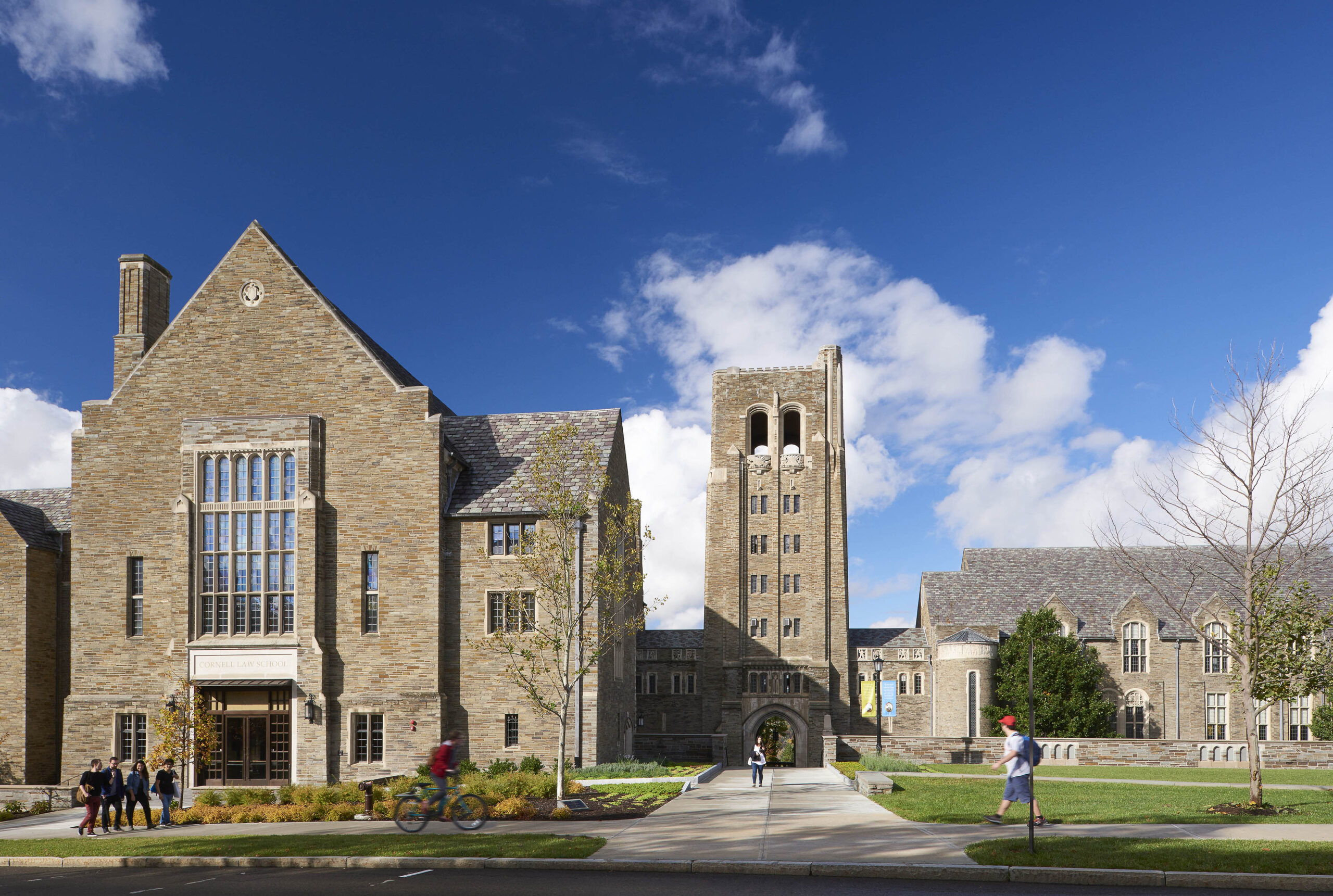In June, Cornell Law School will initiate full federal loan repayments for its graduates in public interest jobs earning up to $120,000 annually—a $40,000 increase from the current $80,000 salary cap.
This change, announced this month, establishes a new standard among U.S. law school loan repayment assistance programs, widely known as LRAPs, for graduates who pursue jobs as public defenders or in civil legal services organizations, for instance. Previously, Harvard Law School and New York University School of Law had the highest salary caps for full loan repayment through their LRAPs at $110,000.
Cornell will also extend partial federal loan repayment to graduates in public interest jobs earning between $120,000 and $150,000 annually for up to 10 years. The higher salary cap aims to attract more alumni into the LRAP and support them in staying in the program longer as they progress through their careers, according to Cornell Law School officials speaking on Monday.
Each of U.S. News & World Report’s 14 top-ranked law schools offers loan repayment assistance to graduates in public interest jobs, where salaries typically lag behind those in the private sector. In 2023, the national median starting salary for civil legal services lawyers was $64,200, while new lawyers at public service organizations earned a median salary of $69,500, and public defenders made $69,600, according to the National Association for Law Placement (NALP). By comparison, the median base salary for new law firm associates was $200,000 in 2023, as per NALP data.
Law school LRAPs have varying structures, but most programs at T-14 schools maintain salary caps between $55,000 and $85,000 for full loan repayment, with Cornell, Harvard, and NYU now being outliers with higher caps. These programs often complement the federal government’s Public Service Loan Forgiveness program, where monthly payments are based on the borrower’s income, and loan balances are forgiven after 10 years of employment in qualifying public interest jobs.
Cornell Law declined to disclose how many alumni currently participate in its LRAP, stating it’s a “modest” number. The school also refrained from revealing how much it annually spends to aid graduates in public interest jobs in repaying their loans. A
ccording to data from the American Bar Association, Cornell Law typically channels a relatively small number of graduates into these positions. Among its 174 juris doctor graduates last year, 19 pursued public interest positions, and three opted for government jobs.

